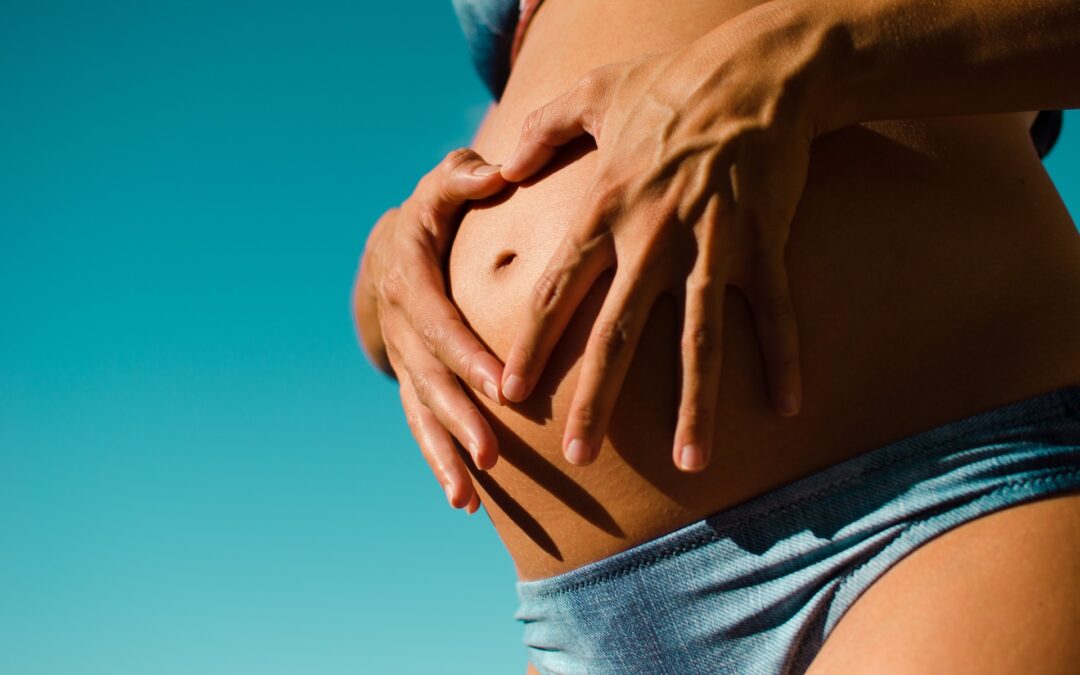Pregnancy is a beautiful and transformative journey for expectant mothers; however, it can also bring about various physical changes and challenges. One common health concern among pregnant women is the development of varicose veins, which are enlarged, twisted veins often appearing on the legs. These veins not only cause cosmetic concerns but may also result in discomfort, aching, and swelling.
At Schulman Vein and Laser Center, our team of New York City and Long Island vein doctors specializes in the treatment and removal of varicose veins, including those associated with pregnancy.
The development of varicose veins during pregnancy is due to the increased blood volume required to support both the mother and the growing fetus. This increased blood flow results in increased pressure on the blood vessels, particularly those in the leg veins. Additionally, hormonal changes during pregnancy can also affect vein wall structure and function, further contributing to the formation of varicose veins.
In the subsequent sections, we will provide a more in-depth look at the factors contributing to varicose veins during pregnancy, the measures expectant mothers can take to prevent them, and the various treatment options available for women who experience these uncomfortable veins during their pregnancy journey. Armed with this knowledge, you can make informed decisions for yourself and your baby, helping you to maintain a healthy and more fulfilling pregnancy.
I. Causes of Varicose Veins during Pregnancy
There are several factors that contribute to varicose veins during pregnancy. Understanding these causes can help expectant mothers recognize their risk and implement prevention strategies.
1. Increased Blood Volume
During pregnancy, a woman’s blood volume increases to support both her body and the growing fetus. This leads to increased pressure on the blood vessels, particularly in the legs, where blood must flow against gravity to return to the heart.
2. Hormonal Changes
Pregnancy brings about hormonal fluctuations that cause blood vessels to dilate and weaken the vein walls. This can lead to the formation of varicose veins, as the veins struggle to maintain their shape and function.
3. Genetic Predisposition
Some women are more likely to develop varicose veins due to genetic factors. If your mother or grandmother had varicose veins during pregnancy, your risk may be higher.
II. Preventing Varicose Veins during Pregnancy
While not all varicose veins can be prevented, there are steps expectant mothers can take to lessen the risk and discomfort.
1. Maintain a Healthy Weight
Gaining too much weight during pregnancy can increase the pressure on your leg veins. By following your healthcare provider’s guidelines for weight gain, you can help minimize your risk.
2. Practice Good Foot Hygiene
Wearing comfortable and supportive shoes can help prevent varicose veins by reducing pressure on the feet and legs. Avoid wearing high heels and instead opt for supportive, cushioned footwear.
3. Engage in Regular Low-Impact Exercises
Regular physical activity, such as walking or swimming, can help promote healthy blood flow and circulation, reducing your risk of varicose veins.
4. Wear Compression Stockings
Compression stockings or socks can help prevent varicose veins by applying gentle pressure to the legs, promoting blood flow and reducing swelling.
III. Treatment Options for Varicose Veins during Pregnancy
If you experience varicose veins during pregnancy, it’s essential to consult with a healthcare professional or vein specialist. They can recommend various treatment options, depending on your specific situation and the severity of your varicose veins.
1. Sclerotherapy
Sclerotherapy is a minimally invasive procedure in which a healthcare professional injects a solution into the affected veins, causing them to collapse and eventually disappear. This procedure can be safely performed during pregnancy, but it’s crucial to work with a skilled vein specialist to ensure the best results.
2. Endovenous Laser Ablation (EVLA)
EVLA is another minimally invasive procedure that uses laser energy to heat the affected vein, causing it to collapse and seal shut. While this treatment is generally safe, it is typically not recommended during pregnancy. Your vein specialist will advise you on whether to proceed with EVLA or wait until after delivery.
3. Vein Stripping
Vein stripping is a more invasive surgical procedure to remove varicose veins. It is not usually recommended for pregnant women, as it requires general anesthesia and has a longer recovery period.
IV. Post-Pregnancy Care for Varicose Veins
For many women, varicose veins improve or disappear entirely after pregnancy. However, if your varicose veins persist or worsen after giving birth, you may need further treatment.
1. Continue Preventive Measures
Continuing to follow preventive strategies, such as wearing compression stockings and engaging in regular physical activity, can help improve your varicose veins after pregnancy.
2. Consult with a Vein Specialist
If your varicose veins do not improve after giving birth, it’s essential to consult with a vein specialist who can recommend appropriate treatment options.
3. Consider Future Pregnancies
If you have experienced varicose veins during pregnancy and plan on having more children, discuss your risk factors and potential preventive strategies with your healthcare provider or vein specialist.
Managing Varicose Veins during Pregnancy
While varicose veins can be an uncomfortable and unwelcome side effect of pregnancy, understanding the causes and strategies for prevention and treatment can help expectant mothers maintain a healthier and more comfortable pregnancy. By working with healthcare professionals and vein specialists, such as our skilled team at Schulman Vein and Laser Center, you can navigate the challenges of varicose veins and focus on the joys of welcoming your new baby.
Don’t let varicose veins stand in the way of a healthy and fulfilling pregnancy journey. Reach out to our New York city and Long Island vein doctors for expert guidance and personalized care.

